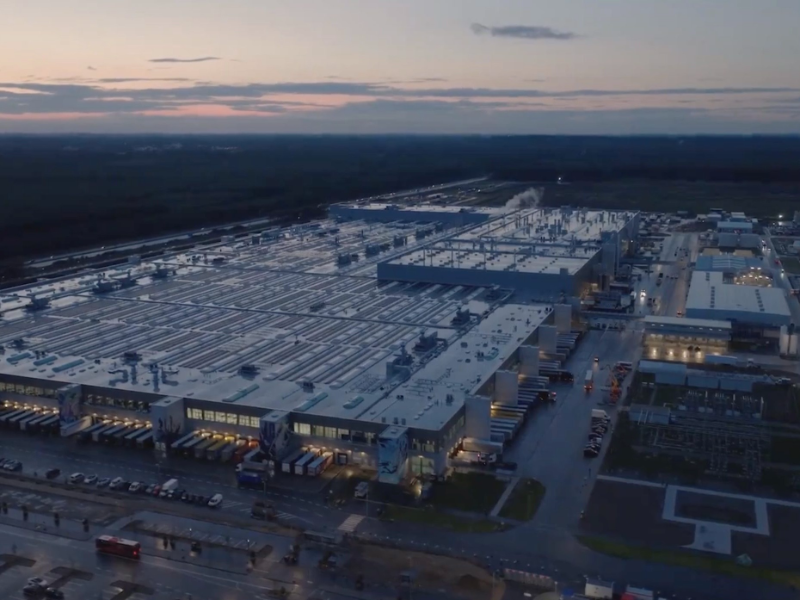- Tesla’s Gigafactory Berlin manager clarified concerns over wastewater treatment, following complaints from the Straussberg-Erkner Water Association.
- Despite complaints, Tesla has achieved 100% recycling of industrial wastewater, addressing concerns raised by the association.
- Tesla plans to further enhance wastewater recycling in the next phase of the factory and aims to increase annual vehicle output to one million.
OUR TAKE
It is understood that wastewater treatment at Tesla’s Berlin Gigafactory has been a focal point of concern for opponents of the factory and its expansion project. However, Thierig stated that Tesla plans to achieve recycling of all wastewater in the next phase of the factory. Therefore, there is no need to amend Tesla’s wastewater treatment contract with the local water association. Tesla plans to build another production facility to increase the annual output of the Berlin Gigafactory to one million vehicles.
— Chloe CHEN, BTW Media reporter
Tesla’s Gigafactory Berlin manager, Andre Thierig, recently clarified the plant’s wastewater treatment issue, stating that Tesla has achieved 100% recycling of industrial wastewater.
Also read: Tesla to raise prices on Model Y electric vehicles in parts of Europe
Also read: Tesla’s German factory halts production after going up in flames
Last month, the Straussberg-Erkner Water Association (WSE), which supplies water to the Berlin Gigafactory, complained about the plant’s wastewater treatment. According to documents from the DPA news agency, the water association claimed that Tesla’s wastewater discharge exceeded standards.
Tesla has currently achieved 100% recycling of industrial wastewater
Thierig recently addressed the wastewater treatment issue of Tesla’s Berlin Gigafactory in an interview with rbb24, stating that WSE’s wastewater complaints targeted industrial wastewater. However, Tesla has currently achieved 100% recycling of industrial wastewater. WSE deals with wastewater generated by Tesla’s factory, such as from toilets and kitchens, which is no different from wastewater generated by residential households.
In other words, WSE includes routine wastewater from the residential sector in Tesla’s industrial wastewater discharge. Thierig also added that even without recycling industrial wastewater, Tesla could meet WSE’s industrial wastewater discharge standards.

